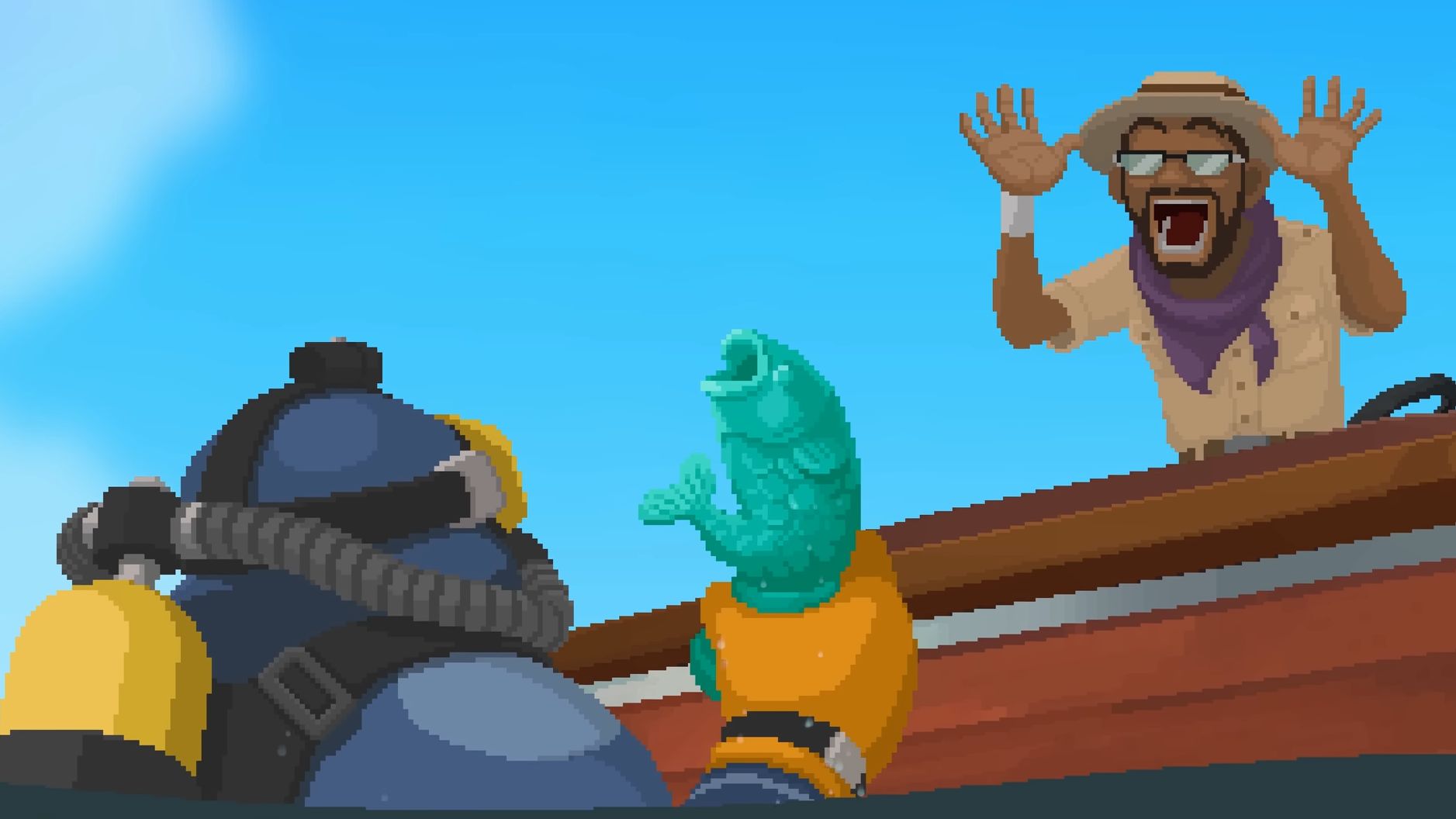'Is Dave The Diver an indie game? I would say no,' says game director
"Everyone says triple-A or indie, but there's so many games in between," Jaeho Hwang of Mintrocket said at GDC.

Every year—and sometimes multiple times per year—the same gaming debates pop up all over again. Review scores: are they good or bad? Are esports players real athletes? Should difficult games always have easy modes? And don't forget the interminable yellow paint debate.
The definition of "indie game" is one of those recurring discussions, and it came up once around last year's Game Awards, when Dave the Diver was nominated for 'Best Independent Game' alongside games like Dredge and Cocoon. Not everyone was thrilled about that: while Dave The Diver definitely has "indie vibes" like 2D pixel art, and the development team at Mintrocket is a relatively small one, Mintrocket itself is a sub-brand of Nexon—a large South Korean game publisher.
At the Game Developers Conference this week in San Francisco, I sat down with Dave the Diver's game director, Jaeho Hwang, to ask for his take on the debate, whether he considers Dave the Diver an indie game or not, and what exactly is an indie game, anyway?
"If you ask 'Is Dave The Diver an indie game?' I would say no," Hwang told me. He was still pleased to receive the nomination in recognition of the hard work his team did. "I really appreciate all the media and critics for nominating us for the best indie game," he said. "That's a big honor for us."
"I don't want [indie developers] to think that we are invading their territory,"
Game director Jaeho Hwang
At the same time, Hwang had some reservations about the nomination. "There were some Twitter comments saying 'Hey, because Dave The Diver [is nominated], our beloved game Pizza Tower couldn't be nominated. So that was kind of a sad moment for me, maybe we are taking a spot from this indie game and indie developers," Hwang said.
"I don't want them to think that we are invading their territory. I have a huge respect for them."
Though Hwang doesn't consider his game indie, he understands why others might. "We never had a large budget or abundant resources as some people may think," he said. "We started with five people and [had] 26 at the peak. But I know the real indie developers work under much harsher conditions. Whether they get invested in or not, they need to do a lot of things by themselves."
The biggest gaming news, reviews and hardware deals
Keep up to date with the most important stories and the best deals, as picked by the PC Gamer team.
He also recognizes the extreme financial struggle that indie studios face when they're not backed by a large publisher like Mintrocket. "We get paid every month, regularly," he said. "We have a lot of internal team [members], they support us anytime we need."
Everyone says triple-A or indie, but there's so many games in between.
Jaeho Hwang
So, what does the term "indie game" mean to Hwang? "It's a tough word to define," he said. "If you started development under a certain organization, maybe you're not an indie because there might be some business strategy involved already." According to Hwang, Nexon was mostly hands-off and didn't give Mintrocket much direction on Dave the Diver's development, but he still recognizes his studio is part of a much larger operation. "So I don't think we are indie in that perspective."
"Maybe it's time to reconsider the word indie," he said. "Larian Studios, Dave the Diver, these are all different from this indie category, but nowadays there's tons of different types of games." He brings up the case of Dredge, developed by Black Salt Games, which Dave the Diver collaborated with last year for a free content pack. "They are completely indie, only four guys, a very small team. But they get some direction and guidance from Team 17, a big publisher. In this case, should we define it as indie?"
It's possible we simply need more words to describe games, Hwang says. "Triple-indie?" he suggested, along with "single-A," laughing a little. "Everyone says triple-A or indie, but there's so many games in between."

Chris started playing PC games in the 1980s, started writing about them in the early 2000s, and (finally) started getting paid to write about them in the late 2000s. Following a few years as a regular freelancer, PC Gamer hired him in 2014, probably so he'd stop emailing them asking for more work. Chris has a love-hate relationship with survival games and an unhealthy fascination with the inner lives of NPCs. He's also a fan of offbeat simulation games, mods, and ignoring storylines in RPGs so he can make up his own.

